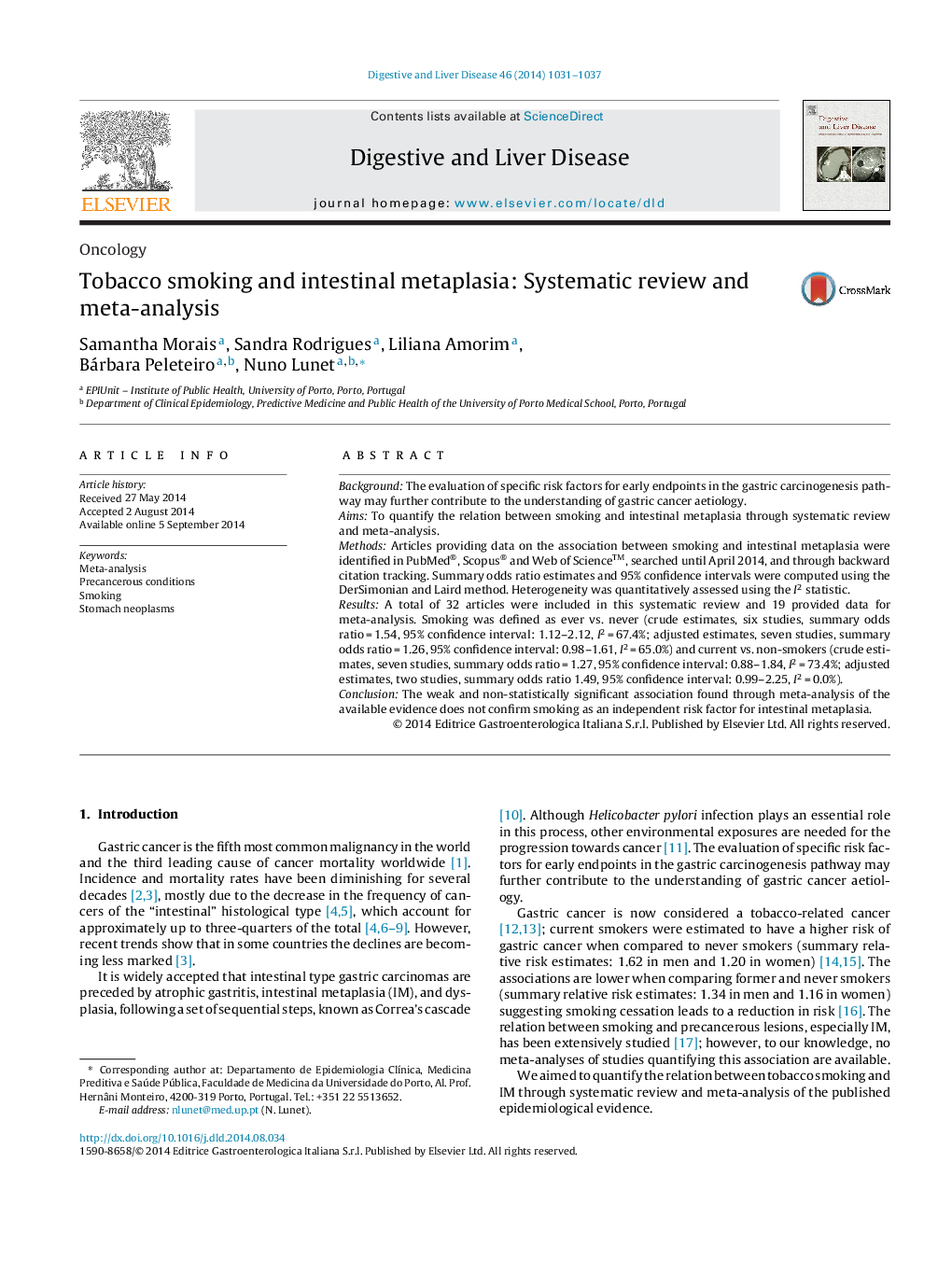| Article ID | Journal | Published Year | Pages | File Type |
|---|---|---|---|---|
| 3261645 | Digestive and Liver Disease | 2014 | 7 Pages |
BackgroundThe evaluation of specific risk factors for early endpoints in the gastric carcinogenesis pathway may further contribute to the understanding of gastric cancer aetiology.AimsTo quantify the relation between smoking and intestinal metaplasia through systematic review and meta-analysis.MethodsArticles providing data on the association between smoking and intestinal metaplasia were identified in PubMed®, Scopus® and Web of Science™, searched until April 2014, and through backward citation tracking. Summary odds ratio estimates and 95% confidence intervals were computed using the DerSimonian and Laird method. Heterogeneity was quantitatively assessed using the I2 statistic.ResultsA total of 32 articles were included in this systematic review and 19 provided data for meta-analysis. Smoking was defined as ever vs. never (crude estimates, six studies, summary odds ratio = 1.54, 95% confidence interval: 1.12–2.12, I2 = 67.4%; adjusted estimates, seven studies, summary odds ratio = 1.26, 95% confidence interval: 0.98–1.61, I2 = 65.0%) and current vs. non-smokers (crude estimates, seven studies, summary odds ratio = 1.27, 95% confidence interval: 0.88–1.84, I2 = 73.4%; adjusted estimates, two studies, summary odds ratio 1.49, 95% confidence interval: 0.99–2.25, I2 = 0.0%).ConclusionThe weak and non-statistically significant association found through meta-analysis of the available evidence does not confirm smoking as an independent risk factor for intestinal metaplasia.
